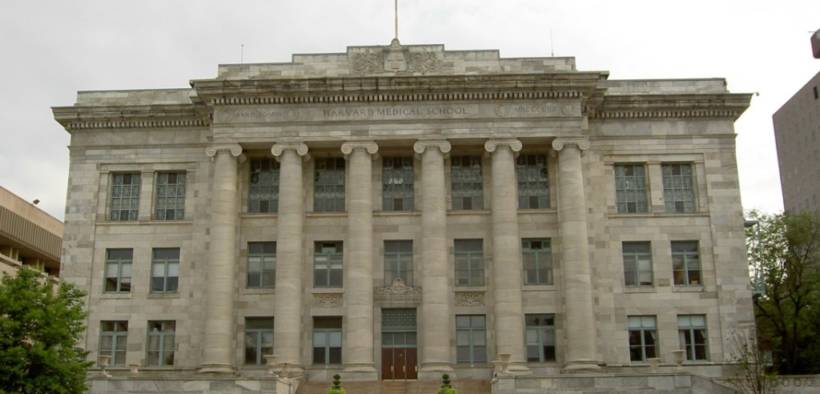Harvard and Yale Under Investigation for Foreign Funding

The Education Department called American universities “multi-billion dollar, multinational enterprises using opaque foundations, foreign campuses, and other sophisticated legal structures to generate revenue.”
The US Department of Education launched investigations into Harvard and Yale over alleged failures to report foreign funding. Notably, China and Saudi Arabia donated to the institutions as part of $6.5 billion the Education Department discovered went unreported. The inspections were prompted by broader efforts by severral federal agencies to hold universities accountable for their funding and tuition practices.
Ivy League Drama
In a document reviewed by The Wall Street Journal, the Education Department called American universities “multi-billion dollar, multinational enterprises using opaque foundations, foreign campuses, and other sophisticated legal structures to generate revenue.”
Moreover, foreign contributions from the likes of China and Saudi Arabia have had zero benefit toward offsetting rising tuition costs, the department found. In addition to China and Saudi Arabia, federal officials asked Harvard to provide details of gifts and contracts involving Qatar, Russia, and Iran.
The higher education organizations are also suspected of concealing funding from Chinese firms Huawei Technologies Co. and ZTE Corp.; Russia-based Kaspersky Lab and Skolkovo Foundation; and the Alavi Foundation of Iran, WSJ reported.
From Yale, the department requested information regarding funding that originated from Saudi Arabia, China and Chinese telecom companies, Peking University’s Yenching Academy, the National University of Singapore, and Qatar. Additionally, the Education Department asked for details regarding Yale Law School’s Paul Tsai China Center and the Jackson School of Global Affairs, both of which it suspects benefited from international funding.
US law mandates universities report gifts and contracts from foreign sources in excess of $250,000 annually, either as a lump sum or combined. Some universities have in the past argued that reporting requirements are ambiguous, a suggestion that the federal government takes refuted.
An official with the Department of Education called the reporting requirements “plainly evident” and said “You have asked the Department to ‘work with the higher education community to…balance the interests of transparency and the complicated nature of reporting.’ There is no statutory basis for any such ‘balance.’”
However, it is undeniable that Washington bears some responsibility for the problem as it has generally not enforced it since the 1980s, according to NPR Correspondent Cory Turner.
“No one denies that this is a problem, that they need to disclose this stuff,” Turner said. “They told me, though – you know, one reason there’s such a need for this money is because state funding for higher ed really hasn’t fully rebounded since the Great Recession.”
Universities also justified the need for international collaboration to enhance research that can lead to scientific and technological breakthroughs. Federal officials are concerned, however, that foreign governments and companies could harbor more sinister reasons for doting on US higher education.
Non-Traditional Espionage
Both the White House and a bipartisan group of Congresspeople believe adversaries are leveraging US academia to advance their economies and militaries. Universities argue that the research is unclassified and therefore there should be no restrictions on its funding sources. However, the alleged benefit to foreign governments, and sentiment that US institutions exist for the benefit of America first and foremost, caused the Senate to become involved.
A 2019 Senate investigation discovered “nearly two-thirds of U.S. schools that received more than that quarter of a million-dollar threshold from what it calls a propaganda arm of the Chinese government actually failed to then properly report it,” Turner said.
The department is no longer sleeping on the issue and the crackdown has already achieved measurable results. Charles Lieber, chair of Harvard’s chemistry department, was arrested after allegedly accepting $1 million from the Chinese government and was placed on indefinite administrative leave, BBC reported. Lieber joined the Wuhan University of Technology as a scientist, authorities said, as part of Beijing’s Thousand Talents Plan. Washington has labeled the program, designed to bring foreign research specialists to China, as a national security concern.
At Boston University, robotics researcher Yanqing Ye was arrested. She allegedly continued her work for the People’s Liberation Army while in Boston. Finally, in the most severe instance, Zaosong Zheng, cancer researcher, was apprehended at Boston Logan International Airport. Allegedly, he was attempting to transport 21 vials of biological samples to China.
“A Black Hole”
Harvard and Yale are not the first universities to garner federal scrutiny. Previously, the Education Department has investigated Georgetown and Cornell Universities as well as the Massachusetts Institute of Technology.
In a February 2019 investigation by the Senate Permanent Subcommittee on Investigations, the subcommittee called higher education “a black hole” and reported that almost 70% of universities failed to disclose Chinese funding.
“The fact that $6.5 billion in foreign gifts to U.S. institutions went unreported until now is shocking and unacceptable…We are pleased that the Department of Education is increasing enforcement efforts and taking a step towards ensuring academic freedom in America,” Sens. Rob Portman, R.-Ohio, and Tom Carper, D.-Del., said in a joint statement.
They have the full support of the Trump administration and Secretary of Education Betsy DeVos.
“This is about transparency. If colleges and universities are accepting foreign money and gifts, their students, donors, and taxpayers deserve to know how much and from whom,” DeVos said. “Unfortunately, the more we dig, the more we find that too many are underreporting or not reporting at all.”













